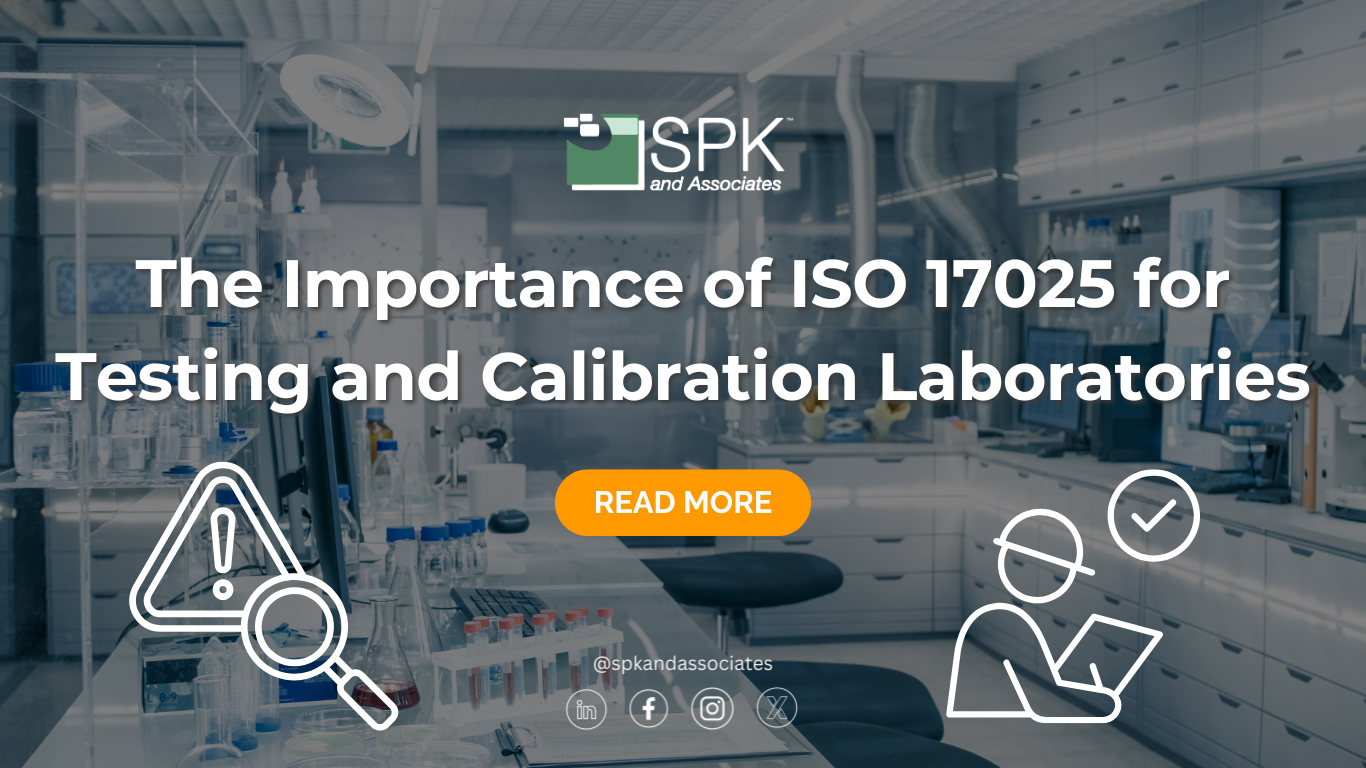Testing and calibration laboratories play a critical role in industries ranging from manufacturing and chemicals to healthcare and research. Their results often influence product safety, regulatory compliance, and customer trust. Organizations must ensure their laboratories consistently produce reliable, accurate, and internationally recognized results, but this is not always simple. That’s where ISO/IEC 17025:2017 comes in. This global standard sets the benchmark for quality and competence in laboratory practices. In this blog, we’ll explore what ISO 17025 is and why it’s so valuable for modern laboratories.
What is ISO 17025?
ISO/IEC 17025:2017 is the international standard for the competence of testing and calibration laboratories. It specifies requirements for a laboratory’s competence, impartiality, and consistent operation. The standard applies to laboratories that test metals, chemicals, and other elements, and provides a comprehensive framework for quality assurance. It requires labs to plan and implement actions that address identified risks, such as product defects, and opportunities, like cost reduction.
ISO 17025 covers three core areas:
- Structural and Resource Requirements: How the lab is organized, and the quality of its personnel, facilities, and equipment.
- Process Requirements: Technical aspects of ensuring the validity of results, including method selection, sampling, and record-keeping.
- Management System Requirements: Tools and processes to support quality work and drive continuous improvement.
Accreditation under ISO 17025 demonstrates a lab’s ability to consistently deliver valid, accurate results. These reports are recognized globally, facilitating international acceptance and trust.
Failure to Comply with ISO 17025
What happens if you don’t comply with ISO 17025? It can lead to severe negative outcomes, many of which directly affect revenue and reputation. The first is loss of credibility. Clients may question the reliability of results, causing lost contracts and partnerships. Non-compliance may also lead to fines, sanctions, or barred market access. In addition to this, labs can face inefficiencies, duplicate testing, and higher error rates due to a lack of standardized processes. This leads to increased costs.
Furthermore, flawed test results could expose organizations to lawsuits if products fail, cause harm, or do not meet safety standards. Compliance is also important for market inclusion. International customers often require ISO 17025 accreditation as a baseline. Without it, global opportunities may vanish. In short, neglecting ISO 17025 doesn’t just create compliance risks. It creates financial, operational, and reputational risks that can impair a lab’s long-term success.
Importance and Benefits of ISO 17025
For laboratories committed to excellence, ISO 17025 delivers substantial benefits:
- Demonstrates Competence: Accreditation proves a lab’s ability to consistently generate accurate, reliable results.
- Boosts Global Recognition: Reports and certificates from accredited labs are internationally accepted, opening doors to new markets.
- Supports Continuous Improvement: Regular risk assessments and audits help labs identify opportunities for efficiency, safety, and performance improvements.
- Reduces Costs and Errors: Streamlined processes and clear protocols lower the likelihood of rework, retesting, and operational waste.
- Ensures Legal Compliance: ISO 17025 aligns with regulatory expectations, helping labs avoid penalties and maintain licenses.
Ultimately, ISO 17025 fosters a culture of quality and accountability that benefits not just laboratories, but the industries and customers they serve.
Importance of ISO 17025 for Testing and Calibration Laboratories
ISO/IEC 17025:2017 is far more than a compliance checkbox. It’s a strategic framework for building competence, credibility, and international recognition in testing and calibration laboratories. Without it, labs risk losing market access, revenue, and trust. With it, they gain a pathway to efficiency, cost reduction, and global acceptance. For organizations ready to take the next step, implementing ISO 17025 ensures laboratories operate at optimal efficiency. If you need help ensuring compliance, contact our experts today.









